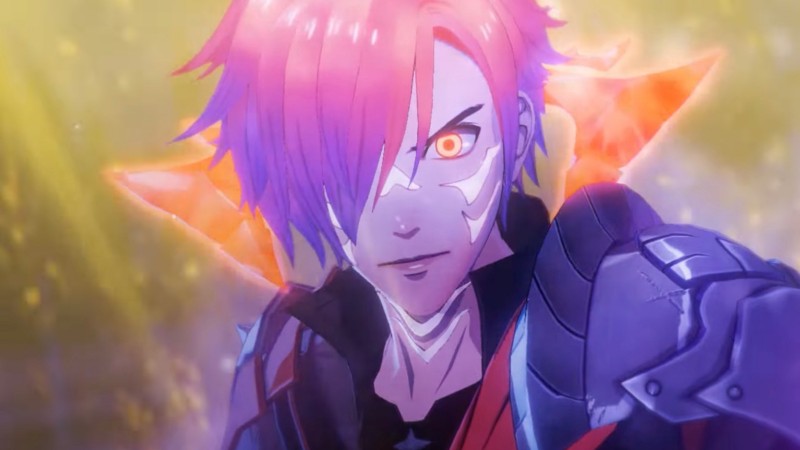
Fire Emblem Warriors: Three Hopes is the latest entry in Nintendo and Koei Tecmo’s Warriors series, which spans The Legend of Zelda and Fire Emblem. Like Hyrule Warriors, which received a Breath of the Wild-specific sequel in Age of Calamity, this new Warriors game is set in the Fire Emblem: Three Houses universe. Three Hopes integrates the world, characters, and lore of the 2019 hit, and you can dive deeper into what I mean by that in my review.
I interviewed Nintendo Co. Ltd. supervisor Genki Yokata, Intelligent Systems character designer and supervisor Toshiyuki Kusakihara, Team Ninja head and producer Yosuke Hayashi, and Koei Tecmo Games director Hayato Iwata to learn more about Three Hopes. We dove deep into the making of this new Musou, how the teams integrated Three Houses into it, and what it was like expanding this highly beloved take on Fire Emblem’s world.
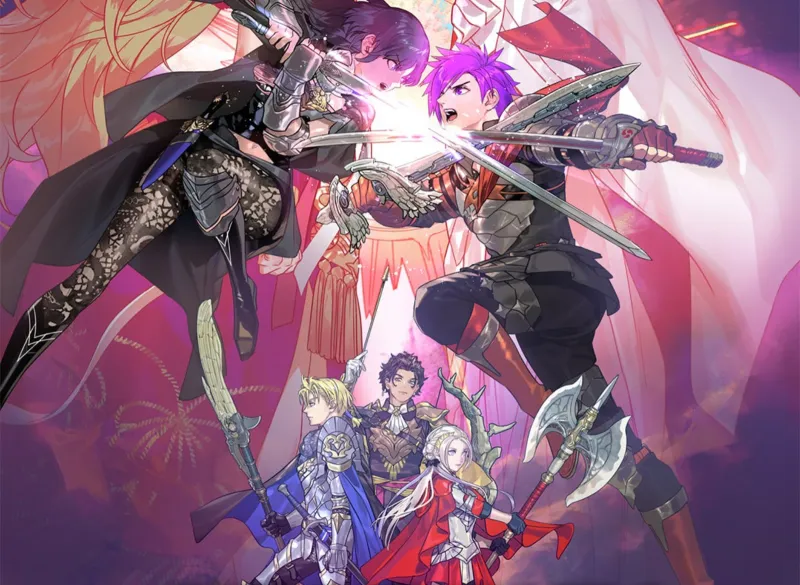
Game Informer: We’ve had a more general Hyrule Warriors and then a very specific Breath of the Wild take on the formula. There’s also been the more general Fire Emblem Warriors, and now a very specific Three Hopes take on the formula. How does the team decide, ‘Okay, we want to make a Warriors game on this specific entry i.e., Three Houses?”
Yosuke Hayashi: It’s true that the progression of games was similar, but that is not something we are doing intentionally. We discussed doing a sequel to Fire Emblem Warriors, which we thought would be the best way to really leverage the current strengths of our three companies, and that just naturally led to the concept of a game focused on Fire Emblem: Three Houses.
Genki Yokata: After working on Fire Emblem Warriors together, the three companies – Koei Tecmo Games, Intelligent Systems, and Nintendo – developed Fire Emblem: Three Houses. Then, when KTG proposed a sequel to Fire Emblem Warriors, we all got very excited about what we could create with the theme of Fire Emblem: Three Houses, a game that all three companies had developed together.
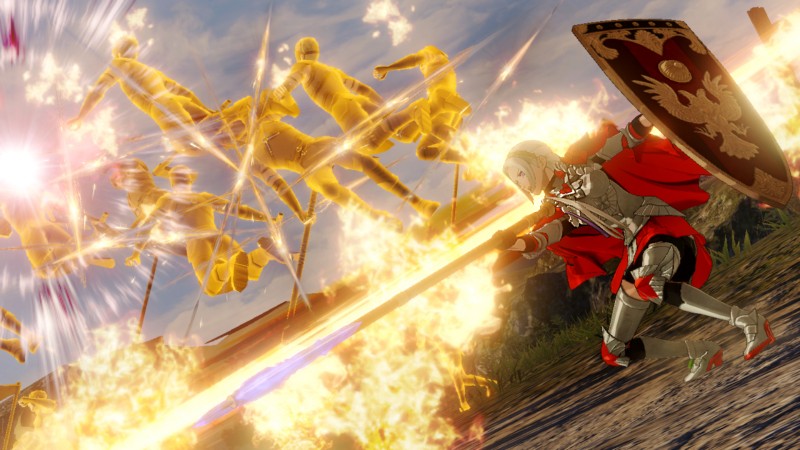
GI: What was it like bringing the world of Three Houses to life again with this sequel/side-story take on Fodlan?
Yokata: With Fire Emblem, we don’t usually get the chance to create a game using exactly the same setting and characters a second time, so I was genuinely happy to be able to tell the story of the Fire Emblem: Three Houses characters again. It was fun. We were also able to create new outfits that are different than the Fire Emblem: Three Houses ones.
Toshiyuki Kusakihara: There were things we were not able to fully portray in Fire Emblem: Three Houses, so I was really happy to get the opportunity to work on another Fire Emblem: Three Houses-related game. It was fun to view the world of Fódlan from a new angle.
Hayato Iwata: Fire Emblem: Three Houses is a game loved by fans around the world. We were faced with the task of developing a game that not only meets the expectations of those fans but exceeds them. Of course, there was a lot of pressure, but more than that, it was a challenge worth undertaking.
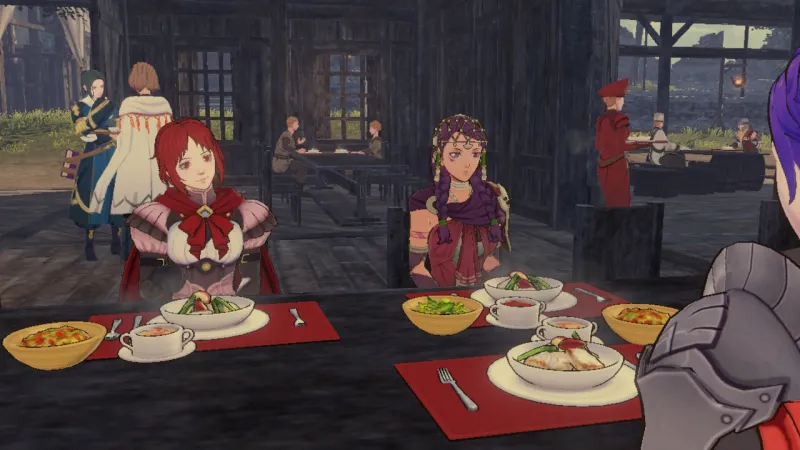
GI: When the team decided it was doing a Three Houses version of Warriors, what were some of the main pillars in making sure Three Hopes felt like it belonged in that world?
Yokata: A lot of the Fire Emblem: Three Houses development staff participated on the KTG side, and there were new designs from IS and the illustrator, Ms. Kurahana, so we were not worried about the expanded world-building.
Kusakihara: In addition to the original development staff, it seemed to me like everyone involved cared deeply about Fire Emblem: Three Houses. There were also renewed discussions about deeper aspects of the Fire Emblem: Three Houses lore. This entire game was created with extraordinary attention to detail, and I feel like we created something closer to a main series game than a simple spinoff.
Iwata: Our goal for this game was to leave the setting and feel of Fire Emblem: Three Houses as is and create another Fire Emblem: Three Houses game, so a good understanding of the original work was more important than it has ever been for past collaboration titles. Because what we create absolutely cannot stray from the ideas in the original game and its foundation. Partially because of that, at the beginning of development, Mr. Hayashi told staff to read all of the past interviews related to Fire Emblem: Three Houses. This was one way to get a better understanding of the original game.

GI: In my preview/review of Three Hopes, I noted that the game really feels like Three Houses, except with a different combat system thanks to how many of the Three Houses systems appear in Three Hopes. How did the team decide what to take from Three Houses to put into Three Hopes and what to leave behind?
Iwata: We at KTG proposed the overall project, and the three companies coordinated about the gameplay elements. The training and social elements at base camps were already included at the point when the project was proposed, and we made adjustments so that these elements would be effective and fit well into the Warriors series. On the other hand, the war map gameplay did not exist in the original proposal. It was implemented based on a suggestion from Mr. Kusakihara that we include a conquest-style war game element, since the setting for this game is focused on warring nations. It turned into an element that plays an important role in this game, both from the perspective of providing a rich gameplay experience and from the perspective of helping players understand and become more immersed in the story. From beginning to end, I think we were able to have very valuable conversations as development progressed.

GI: What were some of the big changes you wanted to make in Three Hopes’ combat to differentiate it from not just Fire Emblem Warriors, but other games in the Warriors series?
Iwata: This was also the case in the original Fire Emblem Warriors, but gameplay where you give instructions to your allies brings in the tactical aspects of the Fire Emblem series while also making the game stand out from other Warriors games. In this game, we’ve strengthened this element even further. For example, we broadened the range of available strategies in ways such as allowing you to change a character’s class and making it possible to customize the affinity between units by assigning battalions. We also added battle prediction information and improved map usability. By making the order-issuing map full screen and strengthening the sense of presence during the game, we tried to impart to the player that this screen is not just a user interface, it’s a location where gameplay is taking place in this tactical game.
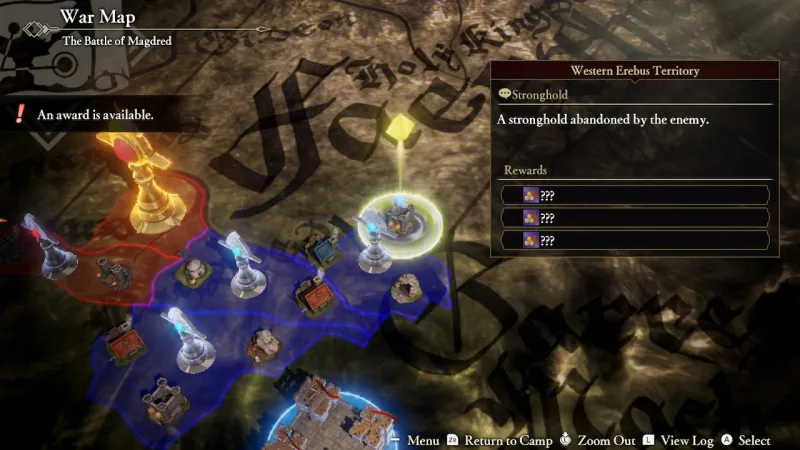
GI: Was Three Hopes always going to have such big branching paths? I imagine deciding that players can choose whichever house is the equivalent of making your game three times as large.
Yokata: The three routes were in the original proposal from KTG, which showed us just how ready they were for this game. The fun of choosing between the three different houses was a big part of Fire Emblem: Three Houses, so although the main character’s situation is different this time, all three companies agreed that we should definitely do three routes.
Kusakihara: The core of Fire Emblem: Three Houses was telling a dramatic story about what happens when people with strong, uncompromising beliefs collide, so I think it was inevitable that we would create three routes for this game, as well. However, as you said, it did result in three times as much game. But that does not mean that we skimped on the amount of content in each route. When I tested out the first playable version of the game, I was surprised by how dense it was.
Iwata: Because we chose Fire Emblem: Three Houses as our theme, we couldn’t avoid having the player experience the story from three different perspectives. Of course, we had concerns about the amount of development required, but somehow, we never got to the point of discussing how we would have players experience that in just one story. We only ever discussed how we could proceed with development in a way that would allow us to complete all three routes. The development staff was determined to do that from the beginning.

GI: With every iteration of Warriors, it’s a chance to improve the Warriors formula, add new things to it, and change things – what was the most exciting improvement or addition to the Warriors franchise you were able to make with Three Hopes?
Hayashi: The Warriors series sometimes receives criticism saying that you just mash the attack button. With this game, we wanted to provide gameplay that addresses that criticism. I feel that this game takes the thrill of fighting as one warrior against a thousand enemies, which is a strong point of the Warriors series, and combines it with the tactics and character growth of strategy role-playing games, and together they represent a new form for the Warriors series.
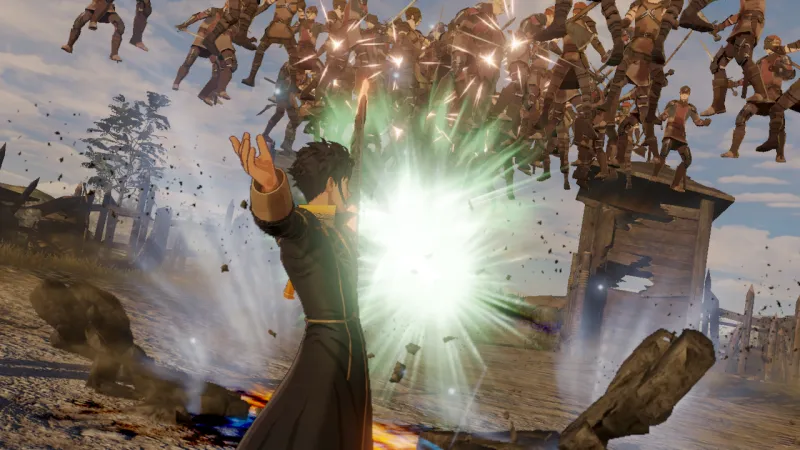
GI: How essential or non-essential do you think it is that players play through Three Houses before Three Hopes and what was it like developing this title knowing there are assuredly players who haven’t played Three Houses?
Yokata: If you’ve played Fire Emblem: Three Houses, you can perceive the changes in each character’s way of thinking, and I think it’s fun to get a sense of how strong Byleth is. On the other hand, even if you haven’t played Fire Emblem: Three Houses, you can learn about each character from square one, so you can still enjoy the game. Then, if you like the characters, the plot, and the world, I think it would also be interesting for you to play Fire Emblem: Three Houses afterward.
Kusakihara: We depicted the massive setting of Fódlan from four points of view in Fire Emblem: Three Houses, showing the different countries with their long histories in which diverse peoples live. With this game, we added three new perspectives, allowing you to see this world from even more angles and revealing more of its depth. This game can be played on its own, of course, and if you play it together with Fire Emblem: Three Houses, you can see that the various elements are connected, which I think can feel deeply enjoyable in its own way.
Iwata: Personally, if it was possible, I’d like to wipe my memory of Fire Emblem: Three Houses, play this game, and then play Fire Emblem: Three Houses. That’s what I thought throughout development. In that sense, I’m envious of players whose first experience is this game.
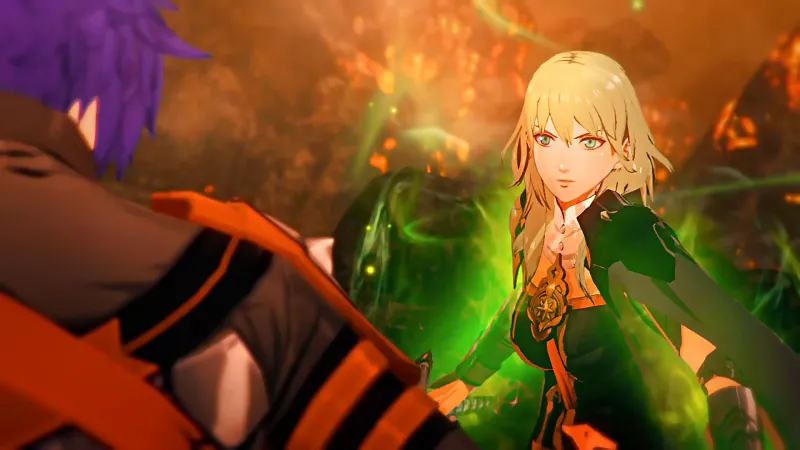
GI: What was the most difficult aspect of developing Three Hopes as a game set in the Three Houses universe and one that must sit alongside other Warriors games?
Iwata: There wasn’t really anything about this game being in the Warriors series that made it difficult to stick to the Three Houses universe. However, in terms of the systems, there was trial and error in trying to strike a balance between being able to enjoy playing it as an action game while not losing the feel and fun of Fire Emblem: Three Houses. With the advancement systems for example, we simplified the class change and weapons systems while following the progression in Fire Emblem: Three Houses.
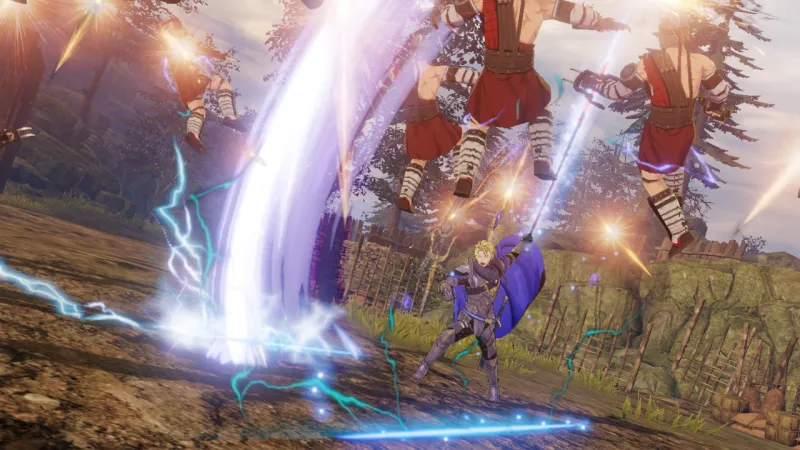
GI: If someone’s never played a Musou, is Three Hopes a good place to start, and if so, why?
Iwata: This game is comprised of many elements, and accordingly we put effort into the tutorials. Through changes to play styles and difficulty levels, we also provide an environment that is acceptable to a wide range of users. Users who are not skilled at action games can issue orders to play through the game in a strategic way, while users who are good at action games can control the characters on their own and move through battles just like previous entries in the Warriors series. I think it’s turned out to be an especially approachable game.
Hiyashi: We’ve developed this game in an attempt to make it the newest and most interesting Warriors game. This game should be the most suitable option for those who are playing the Warriors series for the first time.
Hope to see you in Next Article Soon!

No comments:
Post a Comment